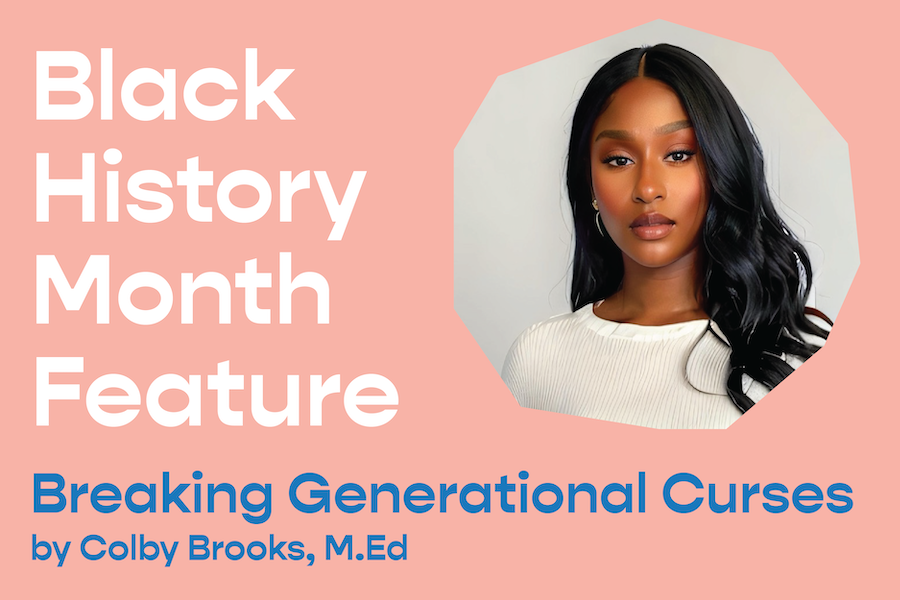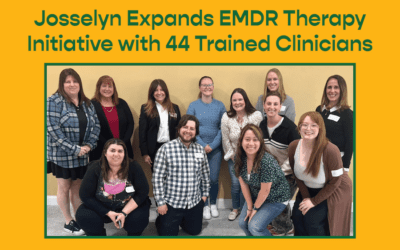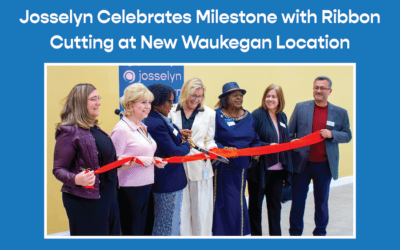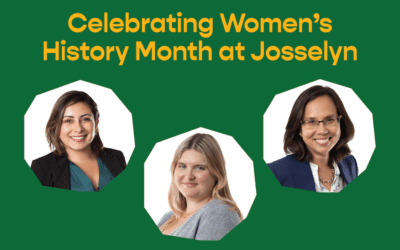
By Colby Brooks, M.Ed
February 22, 2024
This month we’re hearing from some of Josselyn’s staff who are proud members of the Black community, and who share what Black History Month and mental health means to them.
This article features Colby Brooks, M.Ed, who is a therapist at Josselyn’s Waukegan location.
Mental health in the Black community can be empowering in so many ways. The first step is acknowledging there is an underlying trauma that can travel through generations of Black men and women who didn’t have a safe space to be vulnerable, to ask for help, and to be their authentic selves. I often think about my reasons for entering the field of mental health. When I remember my “why,” I see a younger version of myself who her peers and authoritative figures often nullified. That little girl was too afraid to express herself without feeling judged and misunderstood. I channel her energy and know she is proud of the woman she’s become. Eventually, she became her family’s first Black female psychotherapist to break generational curses.
Mental health is my favorite thing to talk about, especially when it pertains to the Black community. Addressing the stigma of mental health in Black spaces means exploring the wide range of attitudes Black Americans have towards mental health treatment. There are various justifications for why Black Americans are more likely to show resistance to seeking a therapist; most times, it starts in the home environment. I’ve either seen or heard many stories where a mental illness was hiding in plain sight or translated by older individuals as “having an attitude.” A mental illness can hide in plain sight long enough that a young Black girl or young Black boy can develop a cynical outlook on the experience of what it may be to accept help from a mental health professional.
From my experience, I was perceived as “too sensitive,” which prevented me from fully expressing my feelings the way I wanted to. To be reduced as sensitive without the efforts to understand why was followed by feeling shameful or rejected for my intense emotions. I went many years throughout my adolescence holding in my pain because, at the time, I was stubborn and assumed that no one would understand how I felt or give me the appropriate tools to help me heal. I sought a therapist on campus during my first year at Eastern Illinois University. Even though I had no idea what to process, I just needed someone to talk to. I was no longer willing to bottle up my emotions and keep pretending that things were okay for me. Ironically, I was majoring in psychology and had already started to develop plans to become a therapist myself in the near future. I went every week and reframing the negative connotations I once believed about myself and my experience was challenging. Going to therapy helped me understand processing my feelings was never anything to be ashamed about. I learned that my feelings were never inconvenient, and now, as a mental health professional myself, that’s what I tell my clients.
Generally, avoiding discussion about how we feel as naturally emotional human beings is more socially acceptable than talking to a professional. I can grasp that there is a distrust of mental health professionals in the Black community from a historical context, but how long does pain travel through generations until someone is ready to feel it? As Morin, LCSW (2020) mentions[1], studies have found that the Black community is more inclined to say that mental illness is associated with shame and embarrassment. Individuals and families in the Black community are also more likely to hide the illness. Breaking generational curses means harmful and toxic traditions or habits can stop with us if we no longer want a certain narrative to define each of our lives. I went into the mental health field because I have always been passionate about not only helping the community but also spreading awareness to my brothers and sisters that regardless of any battles they are fighting, it is not their fault, and healing is possible. Black men and women deserve to be in safe spaces where they can be seen, be loved, and be supported, despite what the process may look like to heal their wounds.
Being a Black female therapist who aims to make changes within the community will forever be one of my best accomplishments. I want to challenge the stigma of mental health in Black communities by showing up for people who have never had anyone tell them that it’s okay to cry, be angry, or be frustrated with the cards that life has dealt them. Most importantly, I want to be a part of the demographic of Black therapists who are normalizing the need to seek help because everyone deserves to see the strengths and potential within themselves. It can begin with unlearning what’s harmful and impeding and what can make room for growth and progress. I see today’s generation of Black therapists, social workers, coaches, and advocates highlighting the many layers surrounding generational trauma that prevent some people from getting help. We are moving in the right direction.
I am transparent about my mental health journey in this article because that’s what helped make me a great therapist. I don’t speak or connect to my clients based on what I learned in a program. I’ve lived it, I’ve felt it, and I’ve seen it. Empowering someone when you have been in their shoes is much more meaningful. To my brothers and sisters: don’t allow generational trauma to hold you back from being the best version of yourself… this includes but is not limited to seeing a therapist. Lastly, I love my blackness and yours.
[1] Morin, A. (2020, October 26). Exploring the Mental Health Stigma in Black Communities. Verywell Mind. https://www.verywellmind.com/exploring-the-mental-health-stigma-in-black-communities-5078964




